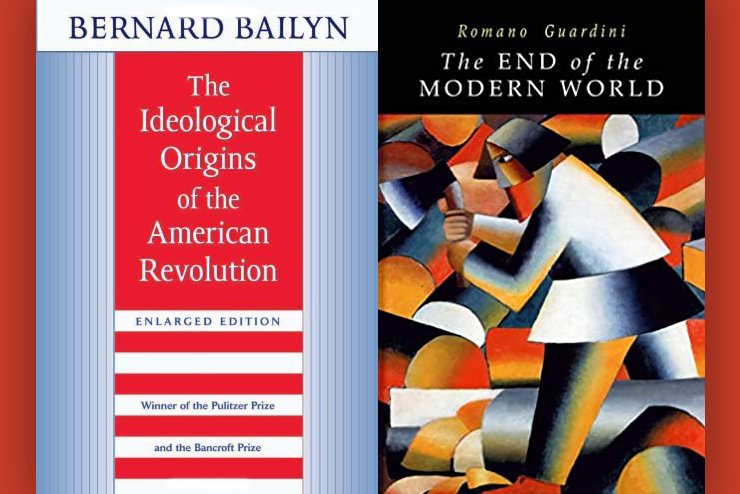The New York Times recently spoke ex cathedra on the American founding through its “1619 Project.” You probably learned in grade school a cartoonish story about white guys in powdered wigs declaring America’s independence in 1776. The Sulzberger family’s College of Cardinals have declared the nation’s birth year was actually 1619, when the first hapless African slaves landed on North American shores. Renowned historians erupted in heretical protest. Unbowed, the Pulitzer bishopric endorsed The Gray Lady’s woke catechism, bequeathing its 2020 award for commentary to 1619 Project creator Nikole Hannah-Jones.
I wonder how my fourth-grade teacher Mrs. Levin got America’s founding so wrong way back in 1974. Maybe she read The Ideological Origins of the American Revolution (1967) by Bernard Bailyn, the only book I salvaged from my father’s unenlightened collection of military and old-school American history. Leftism’s faithful await MSNBC’s retroactive denunciation of the Pulitzer Committee’s unforgivable sin of bestowing its award on Bailyn in 1968.
Unlike the 1619 Project’s suspect methodology, Bailyn studied history as Leopold von Ranke taught us: intensive archival research to produce an account of the past wie es eigentlich gewesen (“as it actually happened”). To form his conclusions, Bailyn read thousands of political pamphlets from the founding, which he called “the most creative period in the history of American political thought.”
Bailyn’s view of the founding was formed in response to the Progressive Era’s class warfare interpretation, popularized by Charles Beard’s An Economic Interpretation of the U.S. Constitution (1913). Bailyn showed how the colonists’ arguments were grounded in the eternal verities of ancient Rome, Enlightenment rationalism, English common law, and covenantal theology. The ideas of the American Revolution were hardly revolutionary.
Bailyn factored the question of slavery into his analysis, as he should have. Sensitive readers, such as undergraduates, beta males, and vegans, will shriek when he equates colonial suffering under British rule with slavery. Likewise his sober, depoliticized enumeration of arguments against chattel slavery heard throughout the colonies before 1776 won’t appease the firebrands rewriting our history today.
Bailyn’s Origins rebuts the 1619 Project’s boldest claims, and will be appreciated by those who anchor their historical understanding on available evidence rather than ideological platitudes. History books are usually perishable goods made obsolete by the emergence of new sources, but Origins has a long expiration date.
—John Greenville
I finally read Romano Guardini’s The End of the Modern World, which is now published as a unit with its sequel, Power and Responsibility. These books, which appeared in their original German in 1950 and 1951, explore the possibilities for civilized life after the collapse of a modern synthesis that believed in progress and idealized nature, culture, and the free development of personality as guides to life.
The author, a perceptive Catholic priest and philosophy professor, views the modern world now upon us as the triumph of technology. But he sees technology as a force that destroys religious feeling, inherited culture, differences among peoples, and even familial and sexual distinctions. That situation deprives man of his place in the world, and puts even his survival in question by enormously increasing his power without fitting him to use it responsibly. The great question, Guardini thought, was whether man would rise to the occasion and attain dominion over power itself.
Guardini’s account of the basic nature of the world he saw coming was brilliant and prophetic. He needs to be read for that reason, and for the broader description of past and present understandings of the world in which he sets his account. But a German philosophy professor could not be expected to foresee the role stupidity, distraction, cowardice, and mediocrity would play as historical forces.
In effect, Guardini calls for a new kind of hero sustained by little but supernatural faith, who in his description seem to combine the strengths of the Christian saint, the stoic sage, and the Nietzschean superman. Very few such people have appeared, and they seem to be growing fewer.
Instead of the cool realism for which he called, we have fuzzy sentimentality. Instead of uncompromising commitment to dogma and supernatural faith, we have—among other things—more and more compromises from his own Church.
So what’s left to us? As a German philosophy professor, perhaps affected by Hegel’s dictum that “the real is the rational,” Guardini tended to believe that history could be grasped philosophically. But history is now giving us growing irrationality in public life. As things now seem, we’re not likely to have a new high civilization soon, and we will be lucky if pockets of survivors can preserve remnants of civility. But that is more likely if we can understand what has happened and what would be required to turn it around. For that, Guardini is a great aid.
—James Kalb
Image Credit:
( The Ideological Origins of the American Revolution (1967) by Bernard Bailyn, and The End of the Modern World (1950) by Romano Guardini.)

Leave a Reply